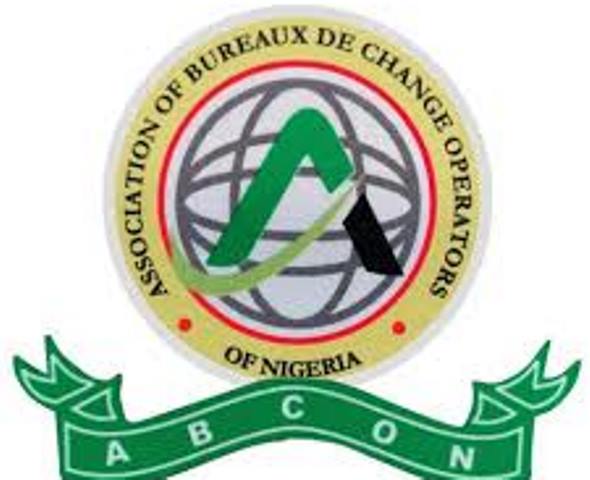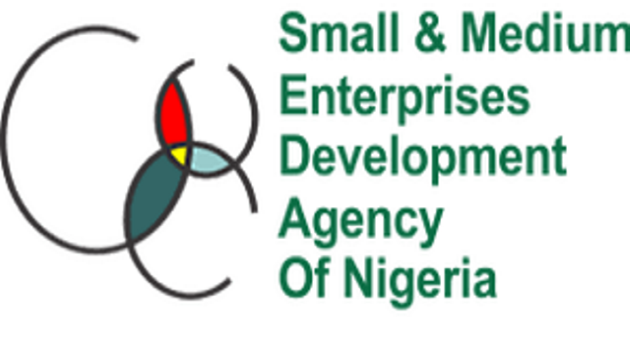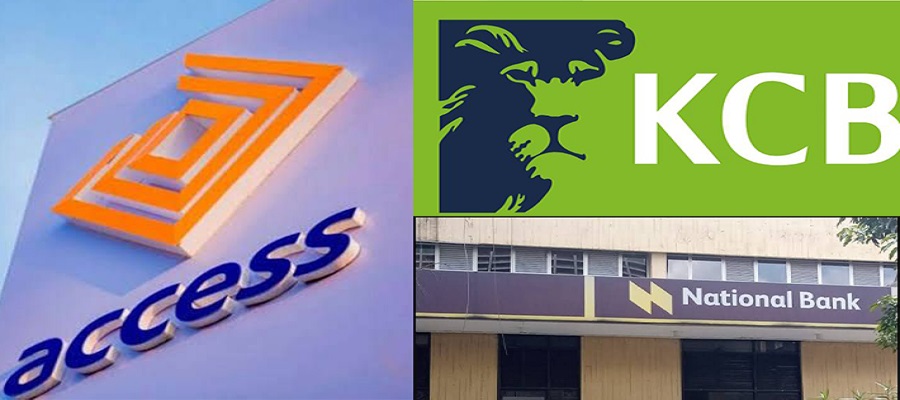E-Financial
ABCON Seeks to Become Payment Agents for Diaspora Remittances

The Association of Bureaux De Change Operators of Nigeria (ABCON) has appealed to the Central Bank of Nigeria (CBN) to make Bureaux De Change (BDCs) payout agents for Diaspora remittances.

Alhaji Aminu Gwadabe, ABCON President, made the request in a statement over the weekend. He urged the central bank to leverage on the over 5,000 licensed BDCs across the six geopolitical zones of Nigeria to get the greenback seamlessly to beneficiaries.
Gwadabe said the plan would help in providing a more convenient channel for Nigerians in the Diaspora to remit funds back to the country to boost economic development.
According to the ABCON boss, the annual remittance inflow of close to $25 billion was critical to Nigeria’s currency management and stability and should be given seamless flow to the economy.
Such funds, he added, would support Nigeria’s balance of payment position, reduce dependence on external borrowing and mitigate the impact of COVID-19 on foreign exchange inflows into the country.
He said BDCs remains the largest foreign currency operators in Nigeria, hence making them payout agents for Diaspora remittances will protect the market from forex cartel that refuse to follow rules by the apex bank.
He explained that such move, would help in achieving market price equilibrium, give depth to the forex market, boost dollar liquidity in the market, enhance foreign reserves accretion and promote exchange rate stability.
Continuing, the ABCON boss said assigning such role to BDCs would enhance their operational capacity and sustainability while solidifying the defense of the naira against other currencies.
According to Gwadabe, the need to bring BDCs into the Diaspora remittances collection business has become exigent following reports of abuse by Mobile Money Operators (MMOs) opposed to paying remittances beneficiaries in dollars as mandated by the CBN.
On November 30th the CBN stated that beneficiaries of Diaspora Remittances through International Money Transfer Operators (IMTOs) shall henceforth receive such inflows in foreign currency (US Dollars) through the designated bank of their choice.
Gwadabe applauded the CBN’s directive, saying it would put an end to malpractices perpetually making dollar scarce and keeping the local currency at the mercy of the greenback. He said the CBN directives have helped to usher in naira rebound to N465/$ in the parallel market and should be upheld.
Analyzed data on IMTOs inflows into the country over the past year, and through investigations discovered that some IMTOs, rather than compete on improving transaction volumes and create more efficient ways for Nigerians in the Diaspora to remit funds, resorted to engaging in arbitrage arrangements on the naira-dollar exchange rate, which to a large extent resulted in a significant drop in flows into the country.
This encouraged the use of unsafe unofficial channels, which also supported diversion of remittance flows meant for Nigeria, thereby undermining Nigeria’s Foreign Exchange management framework.
Gwadabe insisted that for Nigeria to get the full value of what is due to her in the remittance market, BDCs have to be included in the remittances payment channels and allowed to receive funds from Nigerians in Diaspora.
He listed importance of migrant remittances to the economy to include serving as a lifeline for the recipients small house hold in the economy and used for health, nutrition, education and societal needs.
The remittances are also higher than both Foreign Direct Investment and foreign aids flow to the economy and still, are cheaper sources of funds.
The World Bank had predicted that inflow from Diaspora remittance will hit $21.7 billion this year, as against the $23.8 billion the country recorded in 2019.
The World Bank had hinged the drop in remittances from Nigerians living abroad on an account of the double whammy of the COVID-19 pandemic and the attendant economic crisis that has continued to spread.
It had stated: “Remittances are helping to address the impact on African households. Nigeria remains the largest recipient of remittances in the region and is the seventh largest recipient among LMICs, with projected remittances to decline to around $21.7 billion, a more than $2 billion drop compared with 2019.”
E-Financial
SEC, SMEDAN To Launch Campaign on SME Financing

The Securities and Exchange Commission (SEC) is set to collaborate with the Small and Medium Enterprises Development Agency of Nigeria (SMEDAN) to implement joint nationwide sensitization campaigns on “Financing SMEs through the Capital Market.”

Director-General of the SEC, Emomotimi Agama, said this during a meeting with SMEDAN in Abuja on Tuesday. He said both agencies would co-brand financial literacy content and SME investment-readiness toolkits.
Agama explained that the meeting aimed to initiate a strategic collaboration between the SEC and SMEDAN to support small business financing through access to the capital market.
The engagement, he noted, aligns with the mandate of the SEC’s newly established Office of Small Business Advocacy (OSBA), which serves as the primary interface between the Commission and SMEs seeking to raise capital via securities issuance.
According to him, SMEs represent over 90 percent of businesses in Nigeria and contribute significantly to employment and GDP.
Despite their importance, most SMEs face major obstacles in accessing long-term, affordable financing.
He said the SEC, through the OSBA, is actively working to broaden access to market-based financing instruments for SMEs.
He noted that SMEDAN, as a statutory stakeholder in the MSME space, has deep knowledge, nationwide networks, and relevant data infrastructure to support SME development.
A collaborative framework between the SEC and SMEDAN, he added, will foster synergies for policy innovation, capacity building, and SME investment readiness.
Agama further disclosed that the Commission seeks to formalize a partnership with SMEDAN to implement coordinated interventions such as secure access to reliable and verified SME data to enable capital market outreach and segmentation, joint use of SME analytics for market readiness assessments and policy insights, and training programmes for SMEs on capital market funding opportunities, governance, and compliance.
He added that both agencies hope to co-host a National SME Capital Market Summit in the third or fourth quarter of the year to showcase financing opportunities for SMEs.
He emphasized the need to harness Nigeria’s entrepreneurial potential through inclusive capital formation, saying, “There will be no economy without the capital market.
“The capital market is the engine room of any economy. The reason companies are not approaching the market is due to lack of funds.
“We are here to change the narrative because we know that SMEs are the backbone of our economy.
By working with SMEDAN, we can create enabling frameworks to help these businesses access long-term funding.”
Also speaking, the SEC’s Executive Commissioner, Legal and Enforcement, Frana Chukwuogor, noted that under the new Finance Act and SEC regulations, small business owners can raise funds through the capital market, either through equity or debt, to grow their enterprises. She added that the capital market can provide the financial boost SMEs require.
In his remarks, the Director-General of SMEDAN, Charles Odii, welcomed the collaboration, describing it as a game-changer for Nigeria’s SME landscape.
He said that the alliance with the SEC aligns perfectly with SMEDAN’s mandate to upscale and formalize the informal sector.
By introducing SMEs to non-traditional funding avenues like bonds, equities, crowdfunding, and other market instruments, he said more businesses can be empowered to scale sustainably.
The meeting concluded with a shared commitment to establish a national working team to streamline SMEs’ onboarding processes for capital market participation, develop targeted investor education programmes, and create innovative financing models tailored to the needs of small businesses.
This partnership marks a pivotal step toward inclusive economic development and is expected to catalyze job creation, industrial growth, and financial inclusion across the country.
E-Financial
CBN Pumps in Additional $150m into Forex Market to Safeguard Naira

Central Bank of Nigeria (CBN) has reportedly injected $150 million into the foreign exchange market at the beginning of the week to keep the naira safe under pressure.

With sustained forex market intervention, a slew of analysts have formed a consensus that the exchange rate would trade range-bound in the second quarter.
Last week, the Apex Bank sold $635 million to authorized dealer banks in FX market amidst efforts to strengthen liquidity levels in the market.
A potential slowdown in US dollar supply could trigger negative exchange rate movement, according to analysts.
Again, the naira faced another round of demand pressure in the official window as offshore investors continued to exit positions in naira assets.
To stem the negative impacts of unusually high demand for US dollars, the CBN intervened with a sale of $150 million at rates between $/₦1,593.20 and $/₦1,623. Throughout the session, the USD/NGN pair moved within a range of $/₦1,593.10 to $/₦1,630, AIICO Capital Limited reported.
Data from the CBN showed that gross external reserves fell to $38 billion in the absence of additional inflows and a slowdown in oil FX receipts.
In the global commodity market, oil prices fell on Monday despite some positive signals, including exemptions for electronics from U.S. tariffs and a sharp rebound in China’s March crude imports.
These factors were overshadowed by ongoing fears that the prolonged U.S.-China trade war could hurt global economic growth and weaken fuel demand. Brent crude dropped 42 cents, or 0.65%, to $64.34 a barrel, while U.S. West Texas Intermediate (WTI) crude slid 53 cents, or 0.9%, to $60.97.
Meanwhile, gold prices declined over 1% after reaching a new record earlier in the day.
Improved risk sentiment following the tariff exemptions on smartphones and computers contributed to the dip. Spot gold fell 1.1% to $3,200.11, while U.S. gold futures declined 0.9% to $3,216.20. #CBN Injects Additional $150m into FX Market to Safe Naira First Holdco Falls below N1 Trillion in Equities Market
E-Financial
Kenyan CBN Okays Access Bank Full Acquisition Of NBK

Access Bank, a subsidiary of Nigeria’s Access Holdings Plc, has received final regulatory approvals to acquire 100 per cent shareholding of the National Bank of Kenya (NBK), marking a significant milestone in the lender’s strategic expansion across East Africa.

The Central Bank of Kenya (CBK) confirmed on Monday that it granted approval for the transaction on April 4, 2025, under Section 13(4) of the Banking Act.
In a coordinated move, Kenya’s Cabinet Secretary for the National Treasury and Economic Planning also gave the green light on April 10, 2025, pursuant to Section 9 of the same Act.
Access Bank is acquiring NBK through a full purchase of shares from KCB Group Plc, which has held complete ownership of the bank since 2019.
As part of the acquisition, selected assets and liabilities of NBK will be transferred to KCB Bank Kenya Limited, a wholly owned subsidiary of KCB Group.
The CBK and the Treasury have both approved this transfer as an integral component of the broader transaction.
According to CBK, the acquisition will be finalized upon the full completion of agreed terms between Access Bank and KCB Group. Once completed, Access Bank will officially own and operate NBK, positioning itself as a stronger competitor within Kenya’s dynamic financial services landscape.
The acquisition of NBK aligns with Access Bank’s long-term strategy to scale operations in East Africa and deepen its presence in Kenya, one of the continent’s most competitive banking markets.
The move is expected to enhance Access Bank’s capacity to deliver innovative digital and financial solutions to a broader customer base in the region.
The CBK welcomed the acquisition, stating that the transaction is consistent with its objective to promote the development of a sound, stable, and inclusive financial sector.
The regulator expressed confidence in Access Bank’s capability to ensure continuity of services at NBK while strengthening financial resilience in the market.
“The acquisition will enable Access Bank to leverage NBK’s infrastructure and customer base, thereby enhancing service delivery and financial inclusion in Kenya,” the CBK noted.
Access Bank’s expansion reflects a broader trend of cross-border banking consolidation in Africa, as regional financial institutions seek to build scale, diversify risk, and foster long-term growth across key markets.

 E-Business2 days ago
E-Business2 days agoNITDA Warns Against Fake Google Play Store

 General News2 days ago
General News2 days agoLagos Commences Integration of NIN with State Single Social Register

 News2 days ago
News2 days agoNOA Uncovers Fraud by Banks, Universities in Students Loan Scheme

 E-Financial2 days ago
E-Financial2 days agoUBA Redefines Banking with Next-Gen PoS Terminals and Revamped MONI App

 E-Financial2 days ago
E-Financial2 days agoSEC Bans Unregistered Digital Asset Exchanges, Online Forex Platforms

 E-Financial2 days ago
E-Financial2 days agoAfrica Loses $88.6Bn Yearly to Corruption- ECOWAS

 E-Financial2 days ago
E-Financial2 days agoNIBSS Heads to Court to Recover N4Bn Lost due to System Glitch

 General News2 days ago
General News2 days agoNigeria Records $6.83Bn Balance of Payments Surplus in 2024 Amid Economic Reforms

























